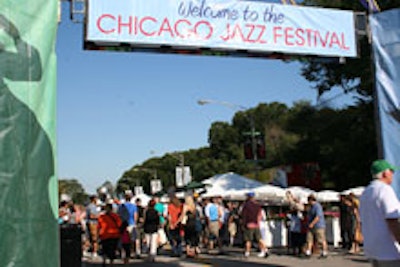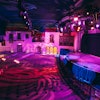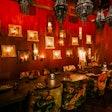
From June's 10-day Taste of Chicago to September's three-day jazz festival, many of the public events on Chicago's summer schedule will, despite new challenges, remain free for the masses this year. "The fact that they're free is one of the biggest reasons that these festivals are so important to Chicago, especially this year, when things have been a little tough for a lot of people," said Cindy Gatziolis, director of PR and marketing for the Mayor's Office of Special Events.
Of course, the tough year didn't only hit the festivals' attendees. "Needless to say, we've had some challenges" when it came to finding event sponsors, Gatziolis said. Some companies who have traditionally thrown their weight behind the festivals backed out this year; although some had simply reached the end of six- or seven-year contracts, other organizations couldn't afford the investment. "In rough times, as we know, what gets cut first is the marketing budget," Gatziolis said. In response, reps from the Mayor's Office of Special Events set their sights on attracting new sponsors, who will be announced in the coming days.
According to Gatziolis, along with sharing success stories from previous sponsors, one of the keys to attracting new corporate funding was "allowing the sponsors to meet their clientele." To accomplish that, Gatziolis and her team shared letters they'd received from festival attendees, including "folks who come to every single Taste of Chicago, and used to come with their mothers and are now bringing their daughters along," she said. "I think showing that loyalty and that dedicated audience is very important in illustrating just how well these events perform."
In addition to working to make up for lost sponsorships, the team at the Mayor's Office of Special Events has made small budget cuts that, according to Gatziolis, won't result in any noticeable changes for festival attendees. "It's little things," she said, "like revisiting which stages are brought in" at events such as the Jazz festival, "or looking at [and revising] some of the hours that contractors work." Gatziolis said contractors were amenable to the changes: "They want to keep their contracts, so this year it's just been about teamwork. Everyone wants to work together to make these events happen."
Apart from creating traditions and nostalgia, Gatziolis said, the festivals have a direct (and indirect) impact on the local economy. Citing research conducted in 2007, Gatziolis said that attendees at Taste of Chicago spent $59 million at the actual event; $24 million went into associated costs such as hotel stays, cab fares, and museum trips. The direct economic impact of the 2007 blues festival, she added, was $35 million. And though individual guests may spend less at this year's events, Gatziolis said, there may be increased crowds due to a current trend of so-called staycations—in which, in order to save funds, people seek leisure activities close to home—so the positive economic impact of the festivals will likely measure up to that of previous years.
A detailed list of upcoming happenings is available here.
Correction: The caption on the jazz festival photo has been updated to correctly state the number of guests that the event typically draws.



















